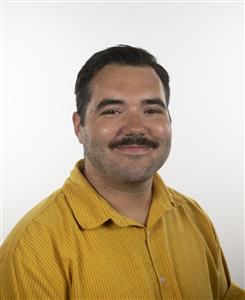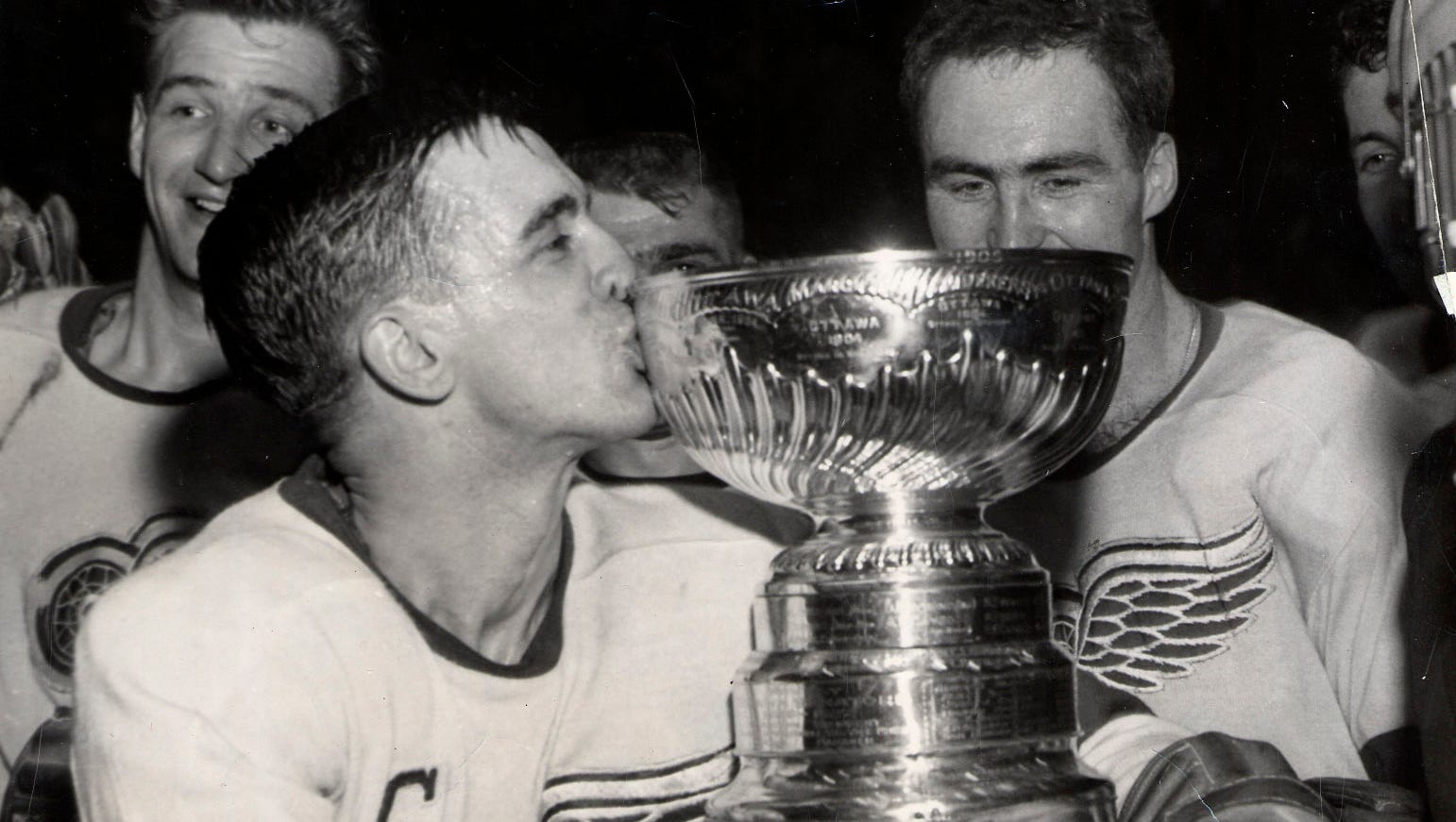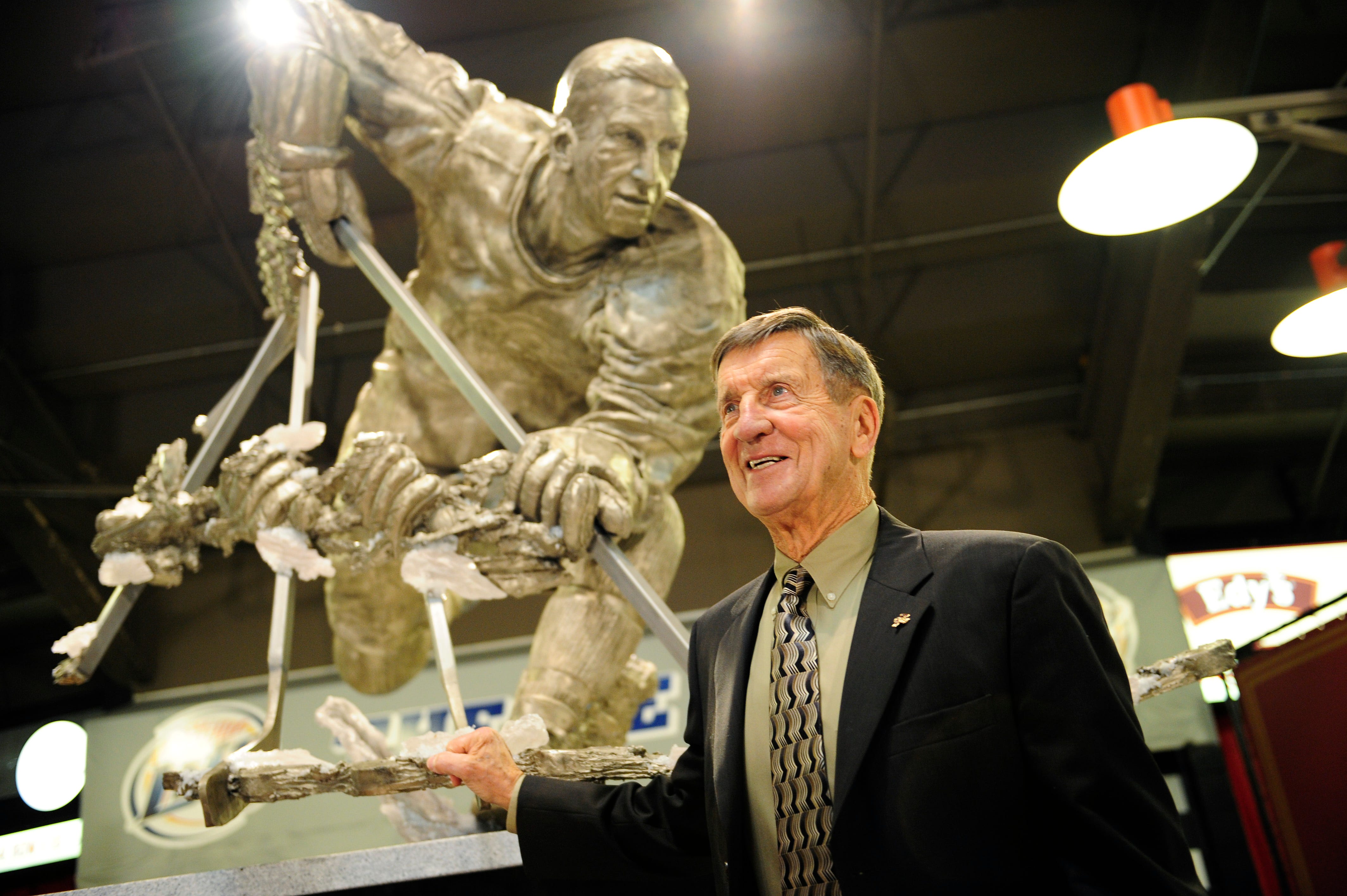Ted Lindsay's generosity reflected in battle to help those with autism
 Nolan Bianchi
Nolan Bianchi

The legacy of Ted Lindsay, the hockey player, will be forever remembered by his nickname, “Terrible Ted.”
But for anyone who knew Lindsay, who died Monday at the age of 93, his role as an active member in the fight to help families cope with autism was just as important as his success on the ice.
Lindsay co-founded the Ted Lindsay Foundation with Wings trainer John Czarnecki in 2001 immediately after learning that Czarnecki had missed Lindsay’s 75th birthday party because his son with autism had fallen ill.
“What Ted did, is he went home that night, and he started to learn what he could about autism,” Czarnecki said.
“Through meeting with me and my wife, and other families that were affected by autism, he saw the need for someone to step up. … He wanted to jump in and start fighting right away.”
The foundation has raised more than $4 million for the cause, according to its website. Lindsay’s most notable pledges were worth $1 million each to Beaumont Children’s Hands-On Parent Education (HOPE) Center and Oakland University’s Center for Autism Outreach Services (OUCARES). Both programs now hold his namesake.
Lindsay’s gift to Beaumont resulted in construction of infrastructure that, along with providing more space for children in the program, allowed for diagnostic programming and speech pathology colleagues to operate in a singular clinic.
“Mr. Lindsay’s goal was to just give us a bigger and more beautiful space so that we could help more kids and do it in a nice environment,” said Lori Warner, director of the Ted Lindsay Foundation HOPE Center. “It just allowed for such better collaboration.”
Due to his hands-on approach, Lindsay and his wife, Joanne, understood the importance of diversifying their aid. Czarnecki recalled Lindsay placed an emphasis on acknowledging “the stress” that having a child with autism “was on all the families as well.”
For Lindsay and his wife, Joanne, part of the appeal to the HOPE Center, Warner said, was the programs it had in place for parental support.
“(We have) individual therapeutic sessions for parents whose kids are being treated here just to support them and coach them through,” Warner said. “They really liked that, and they knew it was important.”
But it wasn’t just children with autism and their parents that Lindsay sought to help. His contribution to Joanne and Ted Lindsay Foundation Autism Outreach Services at Oakland University in Nov. 2018 provided scholarships for adults with autism to participate in pre-employment skills and readiness training.
Of seven adults who have entered the program, three already have their first jobs, according to program director Kristin Rohrbeck.
“The gift from the Ted Lindsay Foundation to our program has been immeasurable,” Rohrbeck said.
Rohrbeck said the publicity generated by Lindsay’s gift has also helped “break past that stigma” of “adults on the spectrum.”
“Since the new year, we’ve had at least ten employers contact us. … Before getting the gift, we had to go to the employers to try to make the connection.”
In a lot of other ways, Lindsay’s commitment to being a community leader until his death has set an example for generations to come.
Red Wing forward Dylan Larkin joined the Ted Lindsay Foundation as a spokesman and board member in October 2018, and Czarnecki gives partial credit to Lindsay’s frequent presence in the Red Wings’ locker room with other players starting their own foundations.
“I think they saw Ted as an example,” Czarnecki said. “Whether he was 90, or 80, or it doesn’t matter, he was fighting for people that couldn’t fight for themselves. I think that encouraged them to start their own foundations and really try to give back to the community.”
Nolan Bianchi is a freelance writer